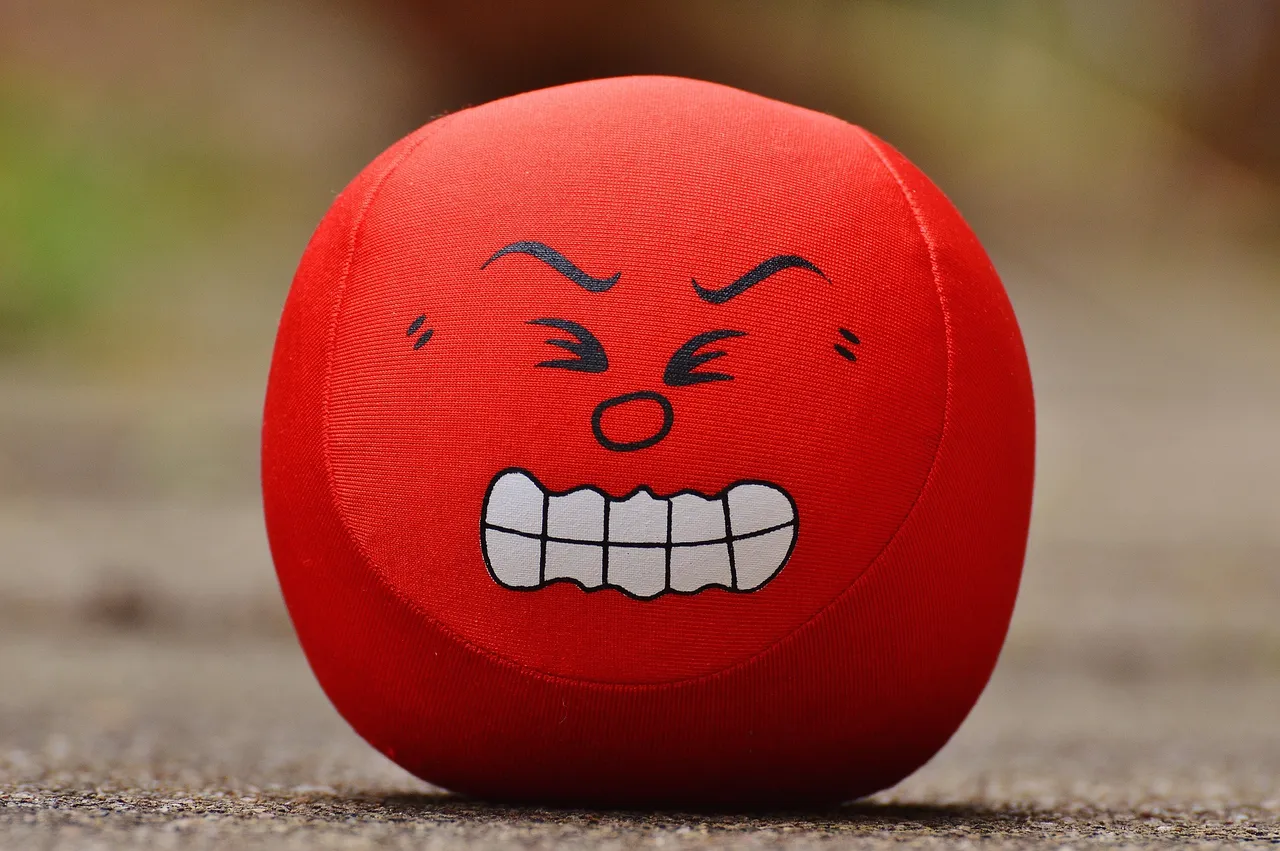
I had a university colleague with whom I used to argue on various topics. One of our favorite discussions was about emotions. He used to say that a person would be better off without having any emotions. On the contrary, a life without emotions seemed meaningless to me.
As usual, the truth lies somewhere in the middle. No doubt that sometimes emotions could be devastating. As it was pointed out in a previous article a stressful event that continues for too long could be damaging for mental and physical health. Unfortunately, not all situation could be dealt with by using problem focused coping style.
If only some issues like an illness or a loss of a loved one could be solved in this way.
But they can’t. However, in order to survive in a situation that cannot be resolved, you could adjust your emotions so that you can still remain sane and healthy.
This process is the so-called Emotion-focused coping strategy. It aims to change your emotional reaction towards a stressful situation. (1)
Now, let’s see now, what could you do?
1. Express your emotions
We have all heard that one should express their emotions instead of keeping them inside. Actually, this is not only an urban legend. There is scientific evidence which shows that expressing emotions helps and also has a long-time impact on health and personal well-being.
Anette Stanton and her associates conducted a study in which they examined the coping styles of 92 breast-cancer patients. The participants filled a questionnaire within 20 weeks following medical treatment and 3 months later. Women who expressed their emotions about having cancer more openly at the entry had fewer medical appointments for cancer-related morbidities within the following 3 months. They also enhanced physical health and vigor, as well as experiencing a decrease in distress during the whole period. Expressive coping also correlated with improved quality of life for those participants who perceived their social contexts as highly receptive. (4).
But
It is important to state that expressing emotions is an entirely different process than screaming at a random coffee-shop worker. It is more about sharing your feelings and reflecting upon them with a trustworthy person. You could release the pent-up emotions when talking to a friend, a confidant, or a therapist.

Please, don’t kill him.
2. Why not do some sports?
It is well known that sport has a huge impact on an individual’s mental and physical health. (6) However, it is important to point out that research has shown that moderate-intensity exercise program may be more beneficial than an intense one.(5), (10). Moderate exercises will not weaken the immune system but will actually do quite the opposite. It is also believed to have a positive effect on the interleukin-2/natural killer cell system.(5) Now, you wonder what on Earth is interleukin-2? I know, I was also wondering about it. It turns out that interleukin-2 has a crucial role in detecting cancer cells in the body (7).
But
However, I must state that sometimes doing sport could actually cause you even more stress.
It is not about sports at any price but about sports, you like and enjoy.
A research amongst college students showed that sport is perceived to be both a buffer and a cause of stress. (9) That is why it is very important to find your thing.
Personally, I used to do jogging especially when I was under stress and felt anxious. I also used to do tae-bo. Kicking really helped me when I felt angry :) Now, as we speak, I realize that I had a different sport for different emotions. Unfortunately, recently I find it very difficult to free some time for sports. Does looking after a baby counts as a sport? If this is so, chances for premature death just lowered for me.
Now seriously folks, it is proven that doing sport is good for your health. Just find your thing and you are good to go.

Well, when I was talking about doing sports, I didn’t have exactly this sport in mind…
3. Do your hobby
Hobbies are the next group of beneficial activities when you are under stress. My hobbies are something that really centers me when I am upset. I like planting, doing home decoration, I even started experimenting with my own home-made cosmetics. I put on some nice peaceful music and dive into the process of creating something with my hands.
But
Nevertheless, if a stressful event has brought some changes in your life, your hobby could stress you even more. (8). For example, imagine that you are a passionate fisherman, but you recently have moved to another country. Going fishing would probably remind you of what you have left behind and make you nostalgic. Thus, once an enjoyable activity, fishing could bring you negative emotions and enhance the perception of stress.
Again, it is all about knowing yourself, as well as being kind to yourself. Just avoid activities that would cause negative emotions.
4. Meditation, mindfulness and progressive muscle relaxation
If you are not into sports that much, you could try to meditate or practice mindfulness. Both have shown to be highly effective in reducing stress, as well as in coping with anxiety disorders.
In addition to that, a mindfulness-meditation-based stress-reduction-intervention has proved to have a long-term positive effect on anxiety and stress. 22 subjects with a history of depression, panic attacks, and other anxiety disorders took part in a study and received the intervention. Three years later they were still experiencing low levels of anxiety and stress. (11)
Meditation and mindfulness could have a very powerful effect on recovering from stress-induced health issues. As it was stated in the first part of this series, stress could cause various skin problems like psoriasis. Research has shown that meditation and mindfulness practice can significantly enhance the positive effects of light treatment to psoriasis patients. The participants who received light treatment, combined with a mindfulness-meditation-based-stress-reduction-intervention, experienced more rapid skin recovery compared to the group which received light treatment only. (12).
A variation to meditation and mindfulness is the progressive muscle relaxation (PMR). It consists of serial conscious muscle contractions and relaxations. It has shown to be highly effective in decreasing the salivary cortisol, state anxiety, and perceived stress. It also manages to slow down the heart rate. 13
You can try a guided PMR here.
Another study showed that progressive muscle relaxation is even more effective when combined with cognitive therapy. The participants were tension headache patients. They were divided into four groups: (1) a progressive muscle relaxation group; (2) a progressive muscle relaxation + cognitive therapy group; (3) pseudo-medication, a credible attention-placebo control; (4) continued headache monitoring. I know what you are thinking: poor group 4, they received no treatment at all for 8 weeks! Even the placebo group was better off. However, headache medication consumption decreased significantly in groups 1 and 2, although group 2 (relaxation + cognitive therapy) experienced the highest relief in tension headache compared to the rest of the groups. (14)
BUT
Just joking. No “but” here :D
5. Every cloud has its silver lining
Many people manage to make a positive reappraisal of the situation. I talked about it in my previous article. Thereby I will just remind you that positive reappraisal is seeing challenges as opportunities, as well as focusing on your strengths instead of your weaknesses. In other words, this is the process of seeing the silver lining of a situation.
Imagine that you have just lost your job. Instead of self-blaming, you can change your attitude and see the event as an opportunity to find a better job. Or why don’t you start this cookie-shop business you have been dreaming about since forever?

This could be you, The Cookie-Monster Master
Or maybe this particular situation is teaching you a lesson. Perhaps you need to be more firm? Or maybe kind? Or you need to learn that you can deal with the uncertainty of having no job for a while?
Learning how to bear the uncertainty is something I was going through (and still am). Nearly two years ago I was on a psychology training when our trainer stated that psychologists must learn how to bear the uncertainty. The sentence just stuck in my head. It was a very hard time in my life. I was suffering a loss, my husband had poor health dealing with every-day pain and there was nothing I could do to help him. On top of that, he wanted us to leave the city I was living for the past 12 years and move to a more quiet and peaceful place. So, I had to not only leave my job but everything I have built like a professional network for the last 10+ years! Lots and lots of uncertainty for me.
However, I realized that dealing with uncertainty was something that I had to wanted to learn to do. To start over. To be open for the new opportunities which will come to my life.
So, I reappraised the situation and saw it as a lesson and a new beginning.
I could view things differently, though. If I didn’t embrace the situation as a fresh start for me, perhaps I would have been in a very sad place right now. I saw the silver lining of the cloud above me and some curiosity and enthusiasm appeared.
But
Of course, from time to time, I am still anxious about all of it to some extent, but it would be naive to think that one should experience only positive emotions. Negative emotions are a part of life. Actually, it is a sign of a mental disorder if one is being extremely happy and ecstatic all the time. Everyone has their ups and downs and this is what life and maturity are all about.
Nevertheless, if your mental and physical well-being declines too much, it is time to try handling it in some way. And this is what this article is all about.

Negative emotions have their silver lining, too.
Dealing with stressful situations is what makes us stronger after all. Psychologists call it resilience. Metaphorically speaking, this is the ability to withstand life storms. Believe me, you want resilience in your deal-with-life suitcase.
Ironically, what builds resilience are … difficulties. So, yes, you want difficulties in your life.
A study has shown that people who experienced some adversities in life were more resilient to experimentally induced pain. The researchers concluded that a history of some lifetime adversity predicts better outcomes than a history of high adversity. You saw this coming, no news here. But just wait! It predicted better outcomes compared to a history of no adversity at all. 14
We surely need difficulties in order to grow and become wiser, stronger, better. Let’s keep this in mind.
Thank you for spending your valuable time reading my article! I will appreciate it if you share your thoughts on the subject.
Created by @insight-out, Valeria Sim
All rights reserved.
References:
(1) Weiten, W., Lloyed, M., Dunn, D., Hammer, E. (2008). Psychology Applied to Modern Life: Adjustment in the 21st Century. Cengage Learning
(2) Abel, M. (2008). Humor, stress, and coping strategies. Humor – International Journal of Humor Research, Volume 15, Issue 4, Pages 365–381
(3) Dowling, Jacqueline (2002). Humor: A Coping Strategy for Pediatric Patients. Journal of Pediatric Nursing, March-April, 2002, Vol.28. No 2, p.123-131
(4) Stanton, A., Danoff-Burg, S., Cameron, C., Bishop, M., Collins, C., Kirk, S., Sworowski, L., Twillman, R. (2000). Emotionally expressive coping predicts psychological and physical adjustment to breast cancer. Journal of Consulting and Clinical Psychology, Vol 68(5), Oct 2000, 875-882
(5) Sothern, M., Loftin, M., Suskind, R., Udall, J., Blecker, U.(1999). The health benefits of physical activity in children and adolescents: implications for chronic disease prevention. European Journal of Pediatrics, March 1999, Volume 158, Issue 4, pp 271–274
(6) Warburton, D., Crystal, N., and Shannon, B. (2006). Health benefits of physical activity: the evidence, CMAJ March 14, 2006, 174 (6) 801-809
(7) Wang, K., David, F., and Jerome, R. (2000). Interleukin-2 enhances the response of natural killer cells to interleukin-12 through up-regulation of the interleukin-12 receptor and STAT4. Blood Journal, Vol. 95, Issue 10, p.3183-3190
(8) Caltabiano, M. (1995). Main and Stress-Moderating Health Benefits of Leisure. Journal of Society and Leisure Volume 18, 1995 - Issue 1, p. 33-51
(9) Kimball, A., Freysinger, V. (2003). Leisure, Stress, and Coping: The Sports Participation of Collegiate Student-Athletes. Leisure Sciences, An Interdisciplinary Journal, Volume 25, 2003 - Issue 2-3, Pages 115-141
(10) Berger, B. G., & Owen, D. R. (1992). Preliminary analysis of a causal relationship between swimming and stress reduction: Intense exercise may negate the effects. International Journal of Sports Psychology, 23(1), 70-85.
(11) Miller, J., Ken, M., Fletcher, D., JonKabat-Zinn, D. (1995).Three-year follow-up and clinical implications of a mindfulness meditation-based stress reduction intervention in the treatment of anxiety disorders. Journal of General Hospital Psychiatry, Volume 17, Issue 3, May 1995, Pages 192-200
(12) Kabat-Zinn, J., Wheeler, E., Light, T., Skillings, A., Scharf, Mark, Cropley, T., Hosmer, D., Bernhard, J. (1998). Influence of a Mindfulness Meditation-Based Stress Reduction Intervention on Rates of Skin Clearing in Patients With Moderate to Severe Psoriasis Undergoing PhotoTherapy (UVB) and Photochemotherapy (PUVA), Journal of Psychosomatic Medicine: September/October 1998 - Volume 60 - Issue 5 - p 625-632
(13) Pawlow, L., Jones, G. (2002) The impact of abbreviated progressive muscle relaxation on salivary cortisol. Journal of Biological Psychology, Volume 60, Issue 1, July 2002, Pages 1-16
(14) Blanchard, E.,Appelbaum, K.,Radnitz, C.,Michultka, D.,Morrill, B.,Kirsch, Cynthia,Hillhouse, Joel,Evans, Donald D.,Guarnieri, Patricia,Attanasio, V.,Andrasik, F.,Jaccard, J.,Dentinger, M. (1990) Placebo-controlled evaluation of abbreviated progressive muscle relaxation and of relaxation combined with cognitive therapy in the treatment of tension headache. Journal of Consulting and Clinical Psychology, Vol 58(2), Apr 1990, 210-215
(15) Seery, M. (2011) Resilience. A Silver Lining to Experiencing Adverse Life Events? Volume: 20 issue: 6, page(s): 390-394
(16) https://www.psychologytoday.com/us/blog/arts-and-health/200806/humor-the-human-gift-coping-and-survival
(17) https://www.berkeleywellbeing.com/reappraisal.html
(18) https://www.webmd.com/sleep-disorders/muscle-relaxation-for-stress-insomnia
Images (under CC0 Creative Commons):
(1) https://pixabay.com/en/smiley-rage-evil-sour-funny-red-1274747/
(2) https://pixabay.com/en/people-man-bartender-restaurant-2592338/
(3) https://pixabay.com/en/portrait-gamer-gamers-play-fantasy-3163518/
(4) https://pixabay.com/en/tidbits-sweetness-blue-810178/
(5) My husband's photography

Contribute STEM content using the #steemstem tag | Support steemstem authors | Join our curation trail | Visit our Discord community | Delegate SP to steemstem